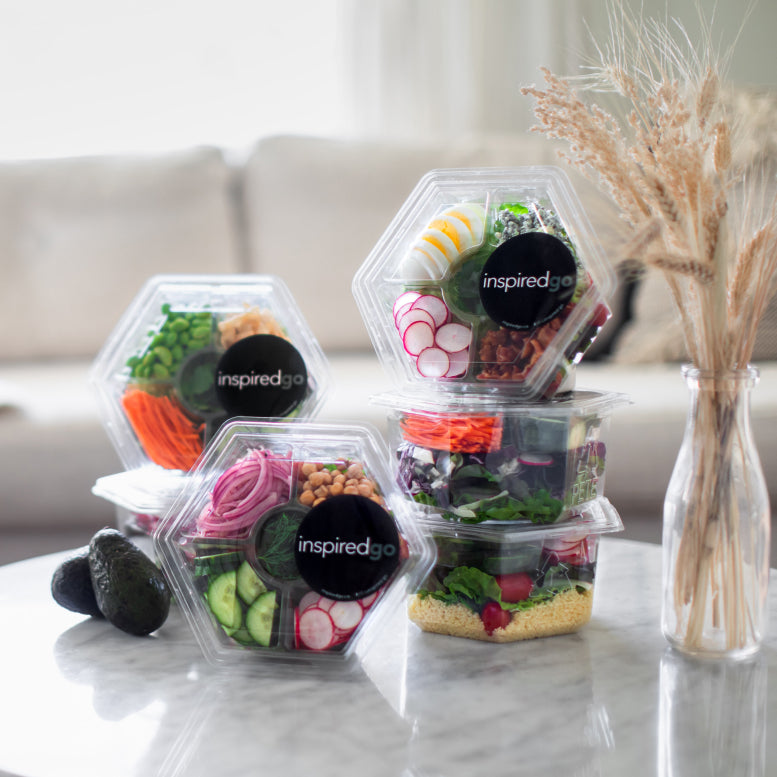How Long Does Vegan Meal Delivery Take?
Table of Contents
1. Understanding Delivery Times for Vegan Meal Options
2. What Do I Eat on a Vegan Diet?
3. How Do Vegan Meal Delivery Services Ensure Balanced Nutrition?
4. How Can I Eat Healthy Without Cooking?
1. Understanding Delivery Times for Vegan Meal Options
For those who follow a vegan diet, meal delivery services can be a life-saver, providing an array of flavorful, plant-based meals right at your doorstep. The delivery timeline, however, can differ based on several factors. These include the delivery service you choose, your location, and the specific meal plan you subscribe to. Generally, delivery times can range from within the same day to up to a week. For some services, you can also customize your delivery schedule to best fit your lifestyle. Always ensure to check the estimated delivery time for your specific area before placing an order. This way, you can plan your meals accordingly and continue enjoying fresh, nutritious vegan meals without any hiccups.
Order fresh salads today →


2. What Do I Eat on a Vegan Diet?
A vegan diet offers a wide variety of plant-based foods, far beyond simple salads or steamed vegetables. Staples of vegan meals include legumes, whole grains, nuts, seeds, fruits, and vegetables, which together provide balanced macronutrients and essential vitamins. Protein sources include chickpeas, lentils, tofu, tempeh, and seitan, while healthy fats come from avocados, nuts, and seeds. Vegan meal delivery services take these ingredients and transform them into flavorful dishes such as vegan curries, grain bowls, pasta, and tacos. These services also ensure variety by offering global-inspired flavors and seasonal produce, keeping meals exciting and satisfying. With vegan meal delivery, customers can enjoy a diverse range of delicious, plant-based meals without repetitive menu choices or time-consuming preparation.
Choose your salads and schedule delivery →
3. How Do Vegan Meal Delivery Services Ensure Balanced Nutrition?
Balanced nutrition is a cornerstone of any vegan diet, and vegan meal delivery services excel at ensuring every meal meets essential dietary needs. Professional chefs and nutritionists collaborate to design menus that include protein-rich legumes, vitamin-packed vegetables, and healthy fats. Nutritional gaps, such as vitamin B12 or iron deficiencies, are addressed through fortified foods or supplements incorporated into meals. Meals are portioned to deliver optimal calorie counts while avoiding nutrient imbalances. Vegan meal delivery platforms also provide detailed nutritional information for transparency, allowing customers to track their intake effectively. With thoughtfully prepared meals delivered directly to customers’ doors, vegan meal delivery services simplify plant-based nutrition without compromising on taste or variety.
Get fresh salads and snacks delivered →
4. How Can I Eat Healthy Without Cooking?
Inspired Go eliminates the need for time-consuming meal prep and cooking while still delivering healthy, delicious vegan meals. With pre-prepared dishes crafted by expert chefs and dietitians, Inspired Go ensures every meal meets high nutritional standards without requiring any effort from the customer. Their ready-to-eat vegan meals are delivered fresh, packed with balanced ingredients, and portioned to support consistent nutrition. Customers can simply unpack, serve, and enjoy their meals without worrying about chopping vegetables, measuring portions, or cleaning up afterward. Inspired Go’s vegan meal delivery provides a seamless solution for busy individuals, professionals, or anyone seeking a healthier lifestyle without the time investment of traditional cooking. Eating healthy has never been more convenient, accessible, or enjoyable.
Try our fresh, ready-to-eat salads →
Frequently Asked Questions
The key difference between vegan and vegetarian diets lies in the exclusion of animal products. Vegetarians avoid meat, poultry, and fish but may consume animal-derived products like eggs, dairy, or honey. Vegans, on the other hand, exclude all animal products, focusing solely on plant-based foods. Veganism is often a lifestyle choice, avoiding animal products in all forms, including clothing and cosmetics.
A vegan diet consists entirely of plant-based foods, including fruits, vegetables, grains, nuts, seeds, and legumes. It excludes all animal-derived products, such as meat, fish, dairy, and eggs. This diet emphasizes nutrient-dense, whole foods, though processed vegan alternatives are available. A vegan diet, when well-balanced, supports good health and environmental sustainability, making it popular for ethical, health, and ecological reasons.
Not all vegan diets are gluten-free. While veganism excludes animal products, gluten is a protein found in wheat, barley, and rye, which are plant-based and commonly included in vegan meals. To maintain a vegan and gluten-free diet, focus on naturally gluten-free foods like fruits, vegetables, rice, quinoa, and gluten-free grains. Always check labels for hidden gluten in processed vegan foods.
On a vegan diet, you can enjoy a wide variety of plant-based foods, including fruits, vegetables, legumes, nuts, seeds, whole grains, and plant-based dairy alternatives. Popular vegan dishes include stir-fries, salads, grain bowls, soups, and curries. Incorporating fortified foods or supplements ensures you meet nutrient needs like B12, iron, and omega-3s, making the diet balanced and enjoyable.
A vegan diet can be very healthy when balanced and diverse. It’s rich in fiber, vitamins, and antioxidants, while being lower in saturated fat and cholesterol. These factors contribute to better heart health, weight management, and reduced risk of chronic diseases. However, careful planning is essential to ensure adequate intake of nutrients like vitamin B12, iron, and protein for overall health.

